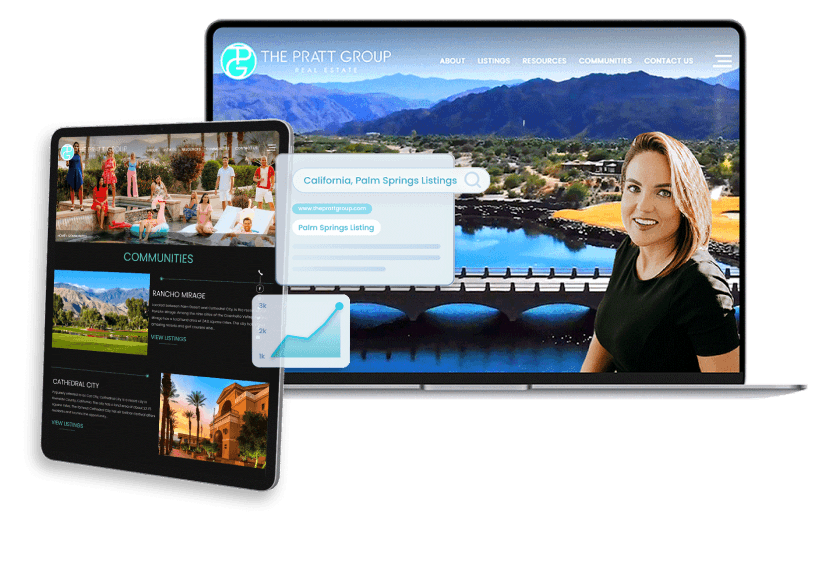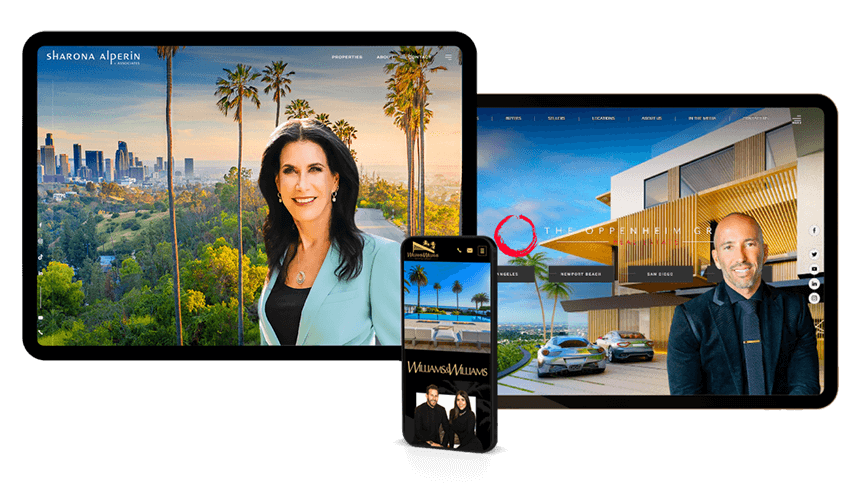
Real Estate SEO
Ultimate Guide For New Agents

Get In Touch With Us For A
Free Consultation
Get In Touch With Us For A
Free Consultation
TABLE OF CONTENTS
Step 01
Perform periodic real estate SEO audits
Step 02
Do keyword research
Step 03
Optimize your website for local SEO
Step 04
Create and publish helpful content
Step 05
Make your website accessible
Step 06
Invest time in link building
The Ultimate Real Estate SEO Guide
How to boost your website traffic
SEO is an ever-changing landscape, with search engines constantly updating their algorithms to provide the best user experience possible. To ensure your real estate SEO can keep up with the latest updates, follow this checklist by Agent Image.
TABLE OF CONTENTS
Step 01
Perform periodic real estate SEO audits
Step 02
Do keyword research
Step 03
Optimize your website for local SEO
Step 04
Create and publish helpful content
Step 05
Make your website accessible
Step 06
Invest time in link building
STEP 01
Perform periodic real estate SEO audits

First, you need to know how your website currently stands. Is it ranking locally? How much of its traffic is organic? How is it performing in terms of lead generation and conversion? An SEO audit identifies strong points and areas of improvement, which include content gaps, site speed, and technical issues. With this information at hand, you can better plan an improved SEO strategy that helps you reach your goals.
It's essential to do the following during an SEO audit:
Review meta titles and descriptions
Find instances of keyword cannibalization
Scan your website for duplicate content
Examine loading times
Assess website content and site architecture
At best, SEO audits should be performed at least every quarter,
especially if your website regularly publishes new content. For smaller real estate
businesses and websites, biannual SEO audits should suffice.
Google Analytics and Google Search Console are two of the most accessible tools
available if you want to audit your website's SEO on your own. But if you want a
comprehensive real estate SEO audit, sit back and turn to experts.
STEP 02
Do keyword research

In order to rank high in search engine results pages, it's important to know which keywords you want to rank for. Identifying these target keywords gives additional direction to your overall real estate SEO strategy. You'll know which keywords to focus on and how long it will take for your website to rank. Keyword research also helps you discern who your competitors are for local search engine rankings.
In conducting keyword research, don't miss the following steps:
Do an initial test of broad terms (seed keywords)
Create a masterlist of relevant related keywords
Take note of a keyword's volume, competition, and specialty
Analyze local organic search competition
Perform competitive keyword research
In real estate SEO, it's recommended to revisit your keywords
every quarter. But if you are on the verge of planning a new real estate SEO campaign, it's
important to get a head start. We recommend researching keywords about 3 to 6 months ahead
of time.
There are a plethora of free keyword research tools available online, such as Moz
Keyword Explorer and Ahrefs. But for real estate SEO beginners or those who want a deeper
dive, check out our SEO packages.
STEP 03
Optimize your website for local SEO

In order to boost your online visibility and attract new clients, it's important for your website to rank well in terms of local SEO. Why? As a real estate agent, you're operating a local business. Furthermore, this business serves a specific geographical area. Whether or not you keep an office or two, local SEO can help increase your presence online and offline. You'll be able to connect more with potential clients from your area.
To optimize your website for local real estate SEO, do the following:
Create a dedicated contact page on your website
Add a Google map with your location pinned
Make sure all contact information are clickable on mobile
Create, complete, and verify your Google My Business page
List your business on other platforms (Yelp, Bing Places, etc.)
Optimizing your website for local SEO comes with several benefits.
It helps you solidify your position as a trusted real estate expert in your area. If you
maintain a brick-and-mortar location, you may see an increase in foot traffic and inquiries.
Some of the local SEO tools you can try to improve your real estate SEO strategy include
Google My Business, SEMRush Listing Management Tool, and GrowthBar. Agent Image also offers
a dedicated Local SEO package.
STEP 04
Create and publish helpful content

The success of your real estate SEO strategy rests on several factors. Among the most important and influential is content. For starters, it impacts how people find your website and engage with it. It's also a determining factor on whether your target audience decides to follow you and your real estate business. Above all else, content has the power to make your website relevant and rank for your chosen keywords.
Here's a short to-do list to create a well-planned content strategy:
Find out what real estate topics users are looking for in your area
Use local phrases throughout your content
Add original images and optimize for mobile search
Dedicate a webpage for frequently asked questions (FAQs)
Publish community-specific blog posts ("best of" lists, local news)
Don't limit yourself to local content on your website. Make sure
your social media profiles are also up to date. You can share location-specific content on
social media. Doing so can help you increase your local online visibility and following.
As for tools to use, we have a few suggestions. You can use Semrush to create
hyper-local content by searching for relevant geo-specific keywords. Agent Image also has a
dedicated team of writers that can create useful, local content for you.
STEP 05
Make your website accessible

In order for your website to deliver the best user experience possible, it needs to be accessible. Everyone should be able to use it, regardless of their age or disability. As you strive to comply with ADA guidelines in your everyday real estate transactions, it's imperative that your website is also compliant. After all, it's an online extension of your business. Furthermore, an accessible website has the capacity to attract a larger audience.
What makes a website accessible and ADA-compliant?
Make sure all links and buttons in your website are clearly labeled
Add text captions and alt text to videos and images
Ensure your website's text remains consistent regardless of window sizes
Provide multiple ways for users to access your website's pages
Make sure the website is navigable via keyboard
This is just a short list of things you can do to make your website 100% accessible. For a complete list of website accessibility compliance guidelines, click here.
BROWSE CUSTOM MARKETING SOLUTIONSSTEP 06
Invest time in link building

Links are another part of real estate SEO that can propel your website to higher search engine rankings. Google and other search engines use high-quality inbound links to determine if a website's content is relevant to a user's search intent and keyword. The more and higher-quality links your website has, the better. But just like any intricate web, link building takes time. The results, however, can be rewarding.
Here's how you can acquire links that will help your local real estate SEO strategy:
Create your own link-worthy content (blog posts and neighborhood guides)
Perform a backlink audit
Add links with high domain authority
Explore local link opportunities
Find and fix broken links in your website
Seeing the results of link building can take anywhere between 3 to
12 months. Several factors can influence this timeline. For starters, the quality of the
links you've earned and acquired have a direct impact on your link building efforts. Traffic
trends can also play a role.
There are several tools you can use to measure your website's link building performance.
WebCEO has a backlink checker that can analyze your backlink profile. You can use Ahrefs and
Semrush to check your website's own domain ranking.

What's the difference between SEO and local SEO?
SEO and local SEO are two peas in the same pod. What differentiates them is their range. While SEO is
more for general and broad terms, local SEO zooms in on area-specific keywords and rankings. With
your business location and contact details out there, old and new clients will have an easier time
finding you.
Working on your real estate website's local SEO can boost your reputation as a trusted agent in
your area or region. Your business will be more visible to prospective local clients. In short,
local SEO – when done right – can help you and your real estate business become a household name in
your area. Higher SERP rankings, increased traffic, and better leads await.
Agent Image offers three SEO packages designed to help you achieve your real estate SEO
goals.
For beginners, start out with a month-long SEO Local campaign that builds a
solid SEO foundation for your website.
If you want to go the distance, our SEO
Premier package is highly recommended.
For unique cases, Agent Image offers
custom marketing solutions tailored to your needs and preferences.
Find out which SEO package works best for your current business goals.
For a FREE consultation
Call 1.800.979.5799
